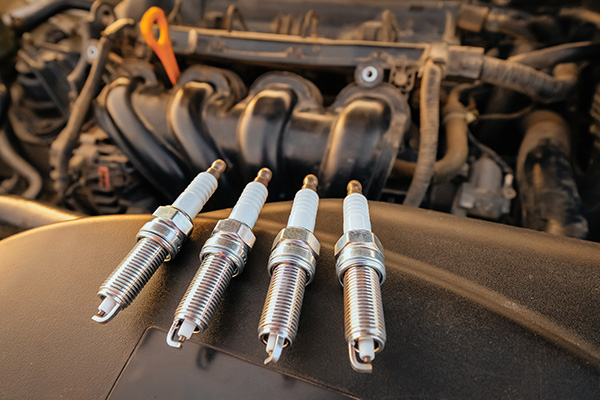
Ever felt that strange, unsettling shake while driving or heard an unexpected popping sound from under the hood? These symptoms often point to an engine misfire, a common issue that can impact everything from performance to fuel efficiency. Understanding what causes a car engine to misfire can help you act quickly, saving both time and money.
Engine Misfires
An engine misfire happens when one or more cylinders in your engine fail to combust the air-fuel mixture effectively. Since your engine relies on synchronized and consistent combustion in each cylinder, a single misfire disrupts the rhythm, causing that familiar jolt or stuttering you might feel on the road. It’s more than just an annoyance; misfires can reduce fuel economy, produce harmful emissions, and lead to long-term engine damage if left unaddressed.
Common Causes of Engine Misfires
Engine misfires stem from various factors, usually tied to issues in the ignition, fuel, or air systems. Here’s a look at the most common culprits:
Faulty Spark Plugs or Ignition Coils
One of the primary causes of engine misfires is a problem with spark plugs or ignition coils. Spark plugs are responsible for igniting the air-fuel mixture in each cylinder, creating the combustion necessary to power your car. Over time, spark plugs can wear down, corrode, or become dirty, leading to weak or absent sparks. Ignition coils, which deliver voltage to the spark plugs, can also malfunction, especially in older vehicles. When one fails, it disrupts the engine’s combustion process, leading to a misfire.
Fuel System Issues
Your fuel system must provide a precise mixture of air and fuel for proper combustion. A malfunctioning fuel injector or a clogged fuel filter can result in an uneven or inadequate fuel supply, causing one or more cylinders to misfire. Fuel injectors, in particular, are susceptible to clogging due to impurities in the gasoline, leading to improper spray patterns and ineffective combustion. Similarly, a failing fuel pump can limit fuel delivery, causing random or frequent misfires.
Air Intake Problems
Just as with fuel, your engine needs a balanced amount of air for optimal combustion. If there’s a blockage in the air intake system, such as a dirty air filter or a leak in the intake manifold, your engine may run “lean” or with less fuel than air. This imbalance can trigger a misfire. In addition, vacuum leaks are common causes of air issues, as they disrupt the intake manifold pressure and interfere with the air-to-fuel ratio needed for each cylinder.
Engine Timing Issues
Timing is crucial for any engine, as the combustion process relies on the precise synchronization of the intake, compression, power, and exhaust strokes. If the timing chain or belt is off even slightly, your engine may misfire. Timing issues are more common in high-mileage vehicles, as belts and chains naturally wear over time. Besides causing misfires, timing problems can also lead to more severe issues, such as engine overheating or valve damage.
Sensor Malfunctions
Modern engines rely on a series of sensors to monitor and adjust key functions, including oxygen levels, fuel ratios, and engine temperature. The oxygen sensor, for instance, monitors the exhaust gasses to regulate the fuel mixture. When any of these sensors fail, they can send incorrect data to the engine control module (ECM), leading to improper air-fuel ratios and misfires. Other sensors that can cause misfires when they malfunction include the mass airflow sensor and throttle position sensor.
Worn or Damaged Engine Components
As your engine racks up miles, various internal components—such as valves, pistons, and gaskets—can wear out. Worn-out valves may leak, leading to a loss of compression in the cylinder, which reduces combustion efficiency and causes misfires. Damaged head gaskets can allow coolant or oil to leak into the cylinders, further affecting combustion. Regular engine inspections can help catch these issues before they lead to persistent misfiring.
Diagnosing and Addressing Engine Misfires
Identifying the root cause of an engine misfire can sometimes be tricky, as multiple systems are involved. Here’s what you can do to address or prevent misfires:
Regular Maintenance
Routine maintenance goes a long way. Changing spark plugs at recommended intervals, keeping fuel filters clean, and checking air intake components can help prevent misfires. Following your vehicle’s service schedule can significantly reduce the chances of misfiring.
Diagnostic Tools
If you experience misfiring, an OBD-II scanner can help identify the exact issue by reading engine error codes. These codes can tell you which cylinder is misfiring and point to potential causes, such as ignition or fuel system problems. Nerger's Auto Express offers thorough diagnostic services to ensure any misfire issues are accurately diagnosed and resolved.
Professional Inspection
Persistent or recurring misfires often indicate deeper problems, such as timing issues or component wear. Our certified technicians can check everything from fuel injectors to timing belts, ensuring you get an accurate diagnosis and comprehensive repair. Ignoring a persistent misfire can lead to further damage, so it’s always better to have it checked sooner rather than later.
Notice a stutter or rough idle? Book an appointment with Nerger's Auto Express for professional engine care that you can count on.